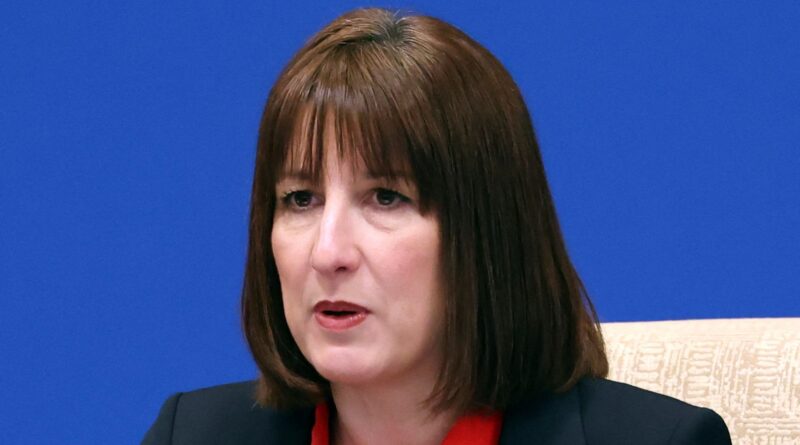Five months after Labour’s election victory the UK economy was the same size as it was in July | Money News
Marginal gains, the science of extracting significant athletic advantage from numerous small changes, has long been a mantra in top-class sport.
Numerous British competitors, from the velodrome to the track, have the medals to prove it.
When it comes to economics, and more specifically to running an economy, this week has provided a lesson that not all marginal gains are equal, and they do not necessarily add up to elite performance.
In the last 48 hours, the UK has seen two small shifts in key economic data, both in the right direction, but with markedly different consequences.
Money blog: Britons need to end ‘obsession with work-life balance’, says millionaire
On Wednesday inflation in the year to December was put at 2.5%, a 0.1 percentage point fall on the previous month, and crucially ahead of expectations set by economists and analysts polled by the media.
The underlying data was even more encouraging. Core and services inflation, crucial metrics for the Bank of England, were down even further and also outstripped expectations.
Markets were buoyed at the prospect of interest rate cuts. Ministers too. The pressure on Chancellor Rachel Reeves, building for a week as bond markets appeared to look askance at the UK, was relieved.
A day later more economic news measured in fractions of a percent. GDP in November, a measure of economic growth, was up 0.1%, the smallest movement statisticians bother to record, but more significant for coming after two successive months of contraction. (In September and October growth was negative 0.1%.)
Rather than signalling a shift, this marginal gain confirmed a trend. In the three months to November growth was flat. The UK economy is bumping along a fraction either side of a flatline.
There was not much encouragement in the underlying data either.
The primary driver of growth was services, specifically in health and social care, primarily because of the absence of junior doctors strikes that reduced output in late summer. The public sector is a vital part of the economy, but a busier NHS is one’s idea of a dynamic way to generate growth.
Read more:
Economy just about returns to growth
BP to cut 4,700 jobs
The uncomfortable truth for the chancellor and her party is, five months after their election victory, the economy was the same size as it was in July. They did not need the opposition to remind them that the first half of 2024 saw growth above 1%, but they did anyway.
Reeves did not overstate the positives, acknowledging there is more to do and stressing her determination “to go further and faster” to deliver growth, a phrase we are destined to hear more often.
Encouragingly, the bond markets that started the week so skittish, in large part because of concern over US inflation, were unmoved.
That makes this the chancellor’s best week of the year so far, but a larger long-term challenge remains.
Increases in employer national insurance, and crucially a cut to the threshold at which it is imposed, will take effect in April. Every major business group has pointed out that the measures will add cost and reduce investment and employment.
Reeves says growth will only be built on the back of stability in the public finances the budget is intended to deliver, and with long-term investment in high-growth industries. To that end she will spend next week at the World Economic Forum in Davos, Switzerland, meeting the companies who might help deliver it.
Reforming the UK economy is a marathon, not a sprint, but politics demands it is both, and Reeves may need to demonstrate more than marginal gains if she is to win either.


